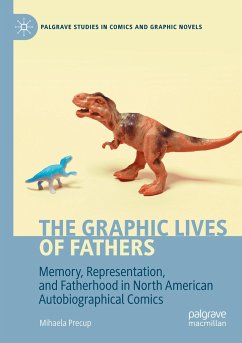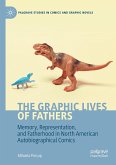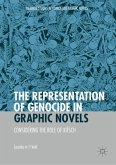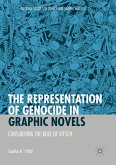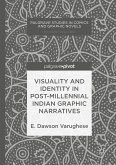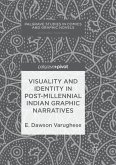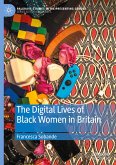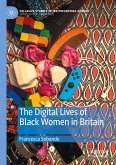This book explores the representation of fatherhood in contemporary North American autobiographical comics that depict paternal conduct from the post-war period up to the present. It offers equal space to autobiographical comics penned by daughters who represent their fathers' complicated and often disappointing behavior, and to works by male cartoonists who depict and usually celebrate their own experiences as fathers. This book asks questions about how the desire to forgive or be forgiven can compromise the authors' ethics or dictate style, considers the ownership of life stories whose subjects cannot or do not agree to be represented, and investigates the pervasive and complicated effects of dominant masculinities. By close reading these cartoonists' complex strategies of (self-)representation, this volume also places photography and archival work alongside the problematic legacy of self-deprecation carried on from underground comics, and shows how the vocabulary of graphic narration can work with other media and at the intersection of various genres and modes to produce a valuable scrutiny of contemporary norms of fatherhood.
"It is a fluently written and thoroughly researched book that provides insightful and accessible analysis of autobiographical comics ... . The book is an excellent introduction not only to autobiographical comics dealing with fatherhood and patriarchy but also the field as a whole. ... Always clear and incisive, the book serves as an exemplary introduction for those at undergraduate level, but also as a model for detailed analysis of given graphic novels applicable to scholars at any level." (David Huxley, Journal of Graphic Novels and Comics, November 6, 2021)
"The Graphic Lives of Fathersis an important addition to scholarship on recent autobiographical comics. Precup is an insightful reader, attentive to visual details, and her discussion of the photographs and silhouettes that inhabit many of the works ties beautifully to her focus on representations of the self. ... In creating this astute gender analysis of twenty-first century autobiographical comics, Mihaela Precupmakes a valuable addition to this vibrant field." (Carolyn Kyler, Biography, Vol. 43 (4), 2020)
"The Graphic Lives of Fathersis an important addition to scholarship on recent autobiographical comics. Precup is an insightful reader, attentive to visual details, and her discussion of the photographs and silhouettes that inhabit many of the works ties beautifully to her focus on representations of the self. ... In creating this astute gender analysis of twenty-first century autobiographical comics, Mihaela Precupmakes a valuable addition to this vibrant field." (Carolyn Kyler, Biography, Vol. 43 (4), 2020)

